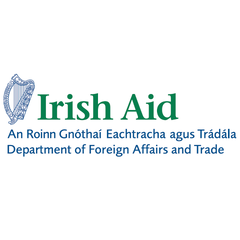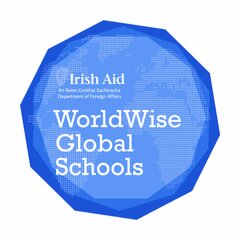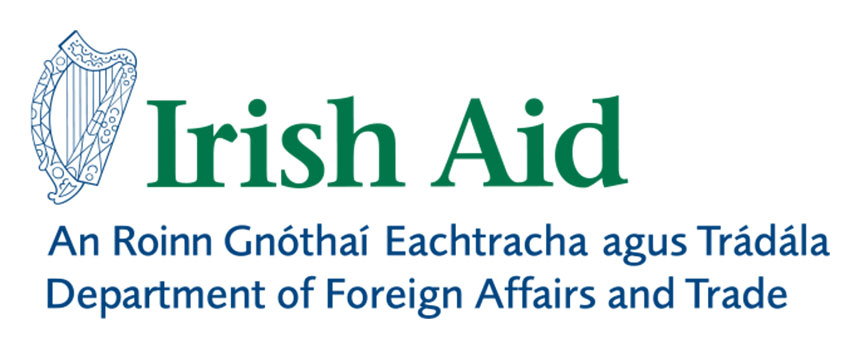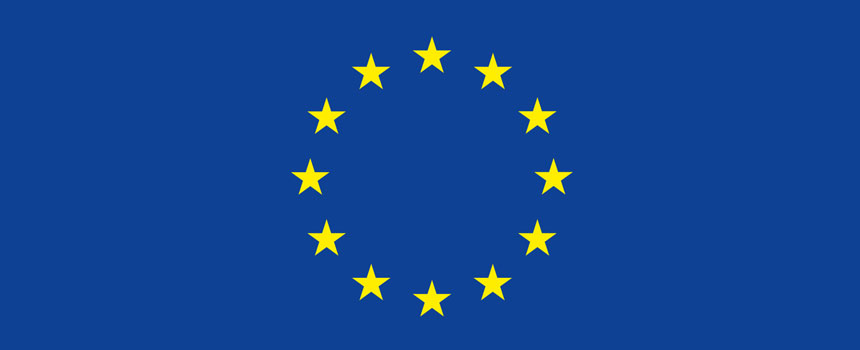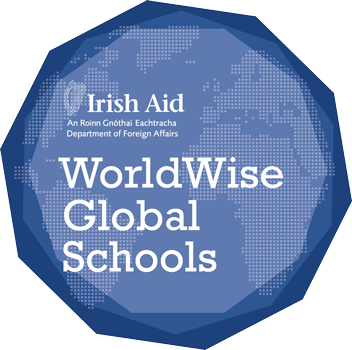Econo-wha Online Course for Post-Primary Teachers
21 March 2024
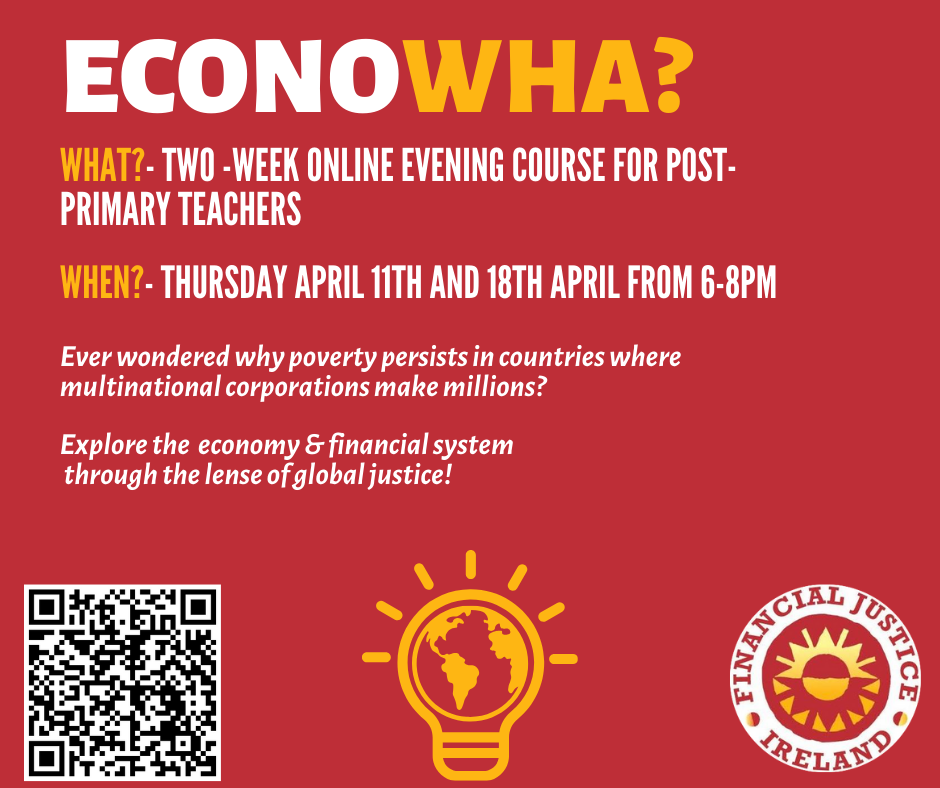
Teachers! - we would love for you to join us in this special teachers' edition of 'Econo-wha?' - a two-week online course for post-primary teachers that will help you to explore the economy and financial system through a global justice lens.
With two consecutive workshops held Thursday 11th and 18th April from 6-8pm we will explore:
Session 1: A GCE approach to Economic and Financial Justice (11th April)
Session 2: Debt Justice & Tax Justice (18th April)
What is Econo-wha?
Econo-wha? is an educational resource that Financial Justice Ireland has been running for a number of years to build confidence in speaking about and acting on the issues of economic and financial justice issues. Over 100 participants have already taken part in this course to gain a fundamental understanding of finance and economics from a social justice perspective while exploring themes of debt, tax, and inequality.
During the two sessions, we will provide an open and supportive environment that encourages you to question, critique and debate - with an emphasis on unlearning as well as learning - as we facilitate a deeper understanding of the root causes of global injustice, while imagining solutions for a fairer and more equitable world.
Interested?
Then join us for the third run of this popular post-primary course!
Registration
Please register here for Zoom, and you will receive the course link once registered. This will be a recurring link that will be used for both sessions.
And just if you have the time ... we would love you to consider the following in advance of starting the course:
What does Global Citizenship Education have to do with economic and financial justice?
Why do debt crises keep happening around the globe?
What is the link between the economy, inequality, and well-being
Who should set the rules for tax?
Looking forward to seeing you on 11th April!
Funded by Irish Aid’s WorldWise Global Schools. The ideas, opinions and comments herein are entirely the responsibility of the authors and do not necessarily represent or reflect WWGS and/or Irish Aid policy.
